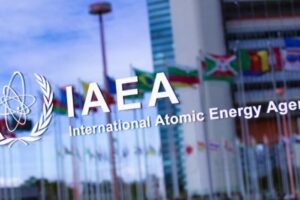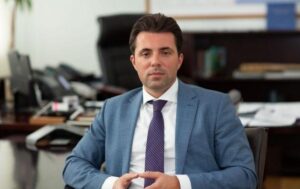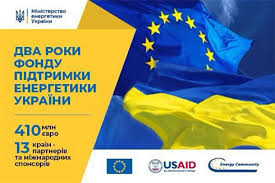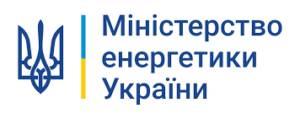
U.N. nuclear agency chief Rafael Grossi met Ukrainian energy officials on Tuesday before a planned visit to the Russian-occupied Zaporizhzhia nuclear plant, part of efforts to prevent a wartime nuclear catastrophe.
Grossi, the director of the International Atomic Energy Agency (IAEA), arrived in Ukraine a week after visiting the Kursk nuclear power station in Russia and warning of the danger of a nuclear accident there.
On his latest visit to Ukraine since Russia’s invasion in February 2022, Grossi met Energy Minister German Galushchenko, as well as Petro Kotin, head of state nuclear power company Energoatom, and Oleh Korikov, acting head of Ukraine’s State Nuclear Regulatory Inspectorate.
The IAEA was “fully committed to safety & security of (Ukrainian) nuclear sites, with (a) presence at each,” Grossi wrote on X alongside photos showing him and Ukrainian officials holding talks.
He said they were “exchanging (views) on our support to Ukraine’s NPPs (nuclear power plants) ahead of my ZNPP visit.”
Grossi said on X on Monday that he was on his way to the Zaporizhzhia nuclear power plant (ZNPP) “to continue our assistance & help prevent a nuclear accident.”
Ukrainian President Volodymyr Zelenskiy said he would meet Grossi after the IAEA chief visits the country’s nuclear plants.
The ZNPP in southeastern Ukraine, Europe’s largest nuclear power plant, fell to Russian troops soon after Moscow’s full-scale invasion and is not operating now.
Both sides have frequently accused each other of shelling the plant. Moscow and Kyiv both deny the accusations.
Zelenskiy and Dutch Prime Minister Dick Schoof on Monday visited the city of Zaporizhzhia, which lies across the Dnipro River to the northeast of the plant.
Zelenskiy also said that at this stage of the war, it is not possible for Ukraine to take back control of the plant.
“It is safer for Ukraine to control the Zaporizhzhia plant, but so far, from the point of view of the battlefield, I do not see such possibilities, and those that probably exist, they are dangerous,” Zelenskiy said.
Russian news agencies reported on Monday that a high-voltage power supply line at the plant had automatically disconnected, but the plant’s needs are supplied by another line. There was no reason given for the automatic disconnection.
Ukraine said Russian attacks had damaged one of the two external overhead lines connecting the plant to the Ukrainian power grid on Monday. Russia did not immediately comment on this assertion.
Russia says the Kursk nuclear plant visited by Grossi last week has been repeatedly attacked by Ukrainian forces that are just 40 km (25 miles) away since Ukraine carved out a slice of Russian territory in a cross-border attack this month.
Grossi said after visiting the Kursk nuclear plant that it was extremely fragile because it had no protective dome and that the “danger or possibility of a nuclear accident has emerged near here.”
Ukraine’s foreign ministry on Thursday denounced what it said were Russian efforts to “accuse Ukraine of alleged provocations against nuclear safety”.
It said Russia had intensified a “disinformation campaign to distract attention from its own criminal acts at the Zaporizhzhia nuclear power plant.”
In a statement, it described such accusations as “cynical” following attacks on energy infrastructure that forced Ukraine to disconnect several nuclear power units from the grid last week.

The situation in the Ukrainian energy system next week will be perceptibly more difficult compared to the current week, said the Chairman of the Board of the NEC Ukrenergo Volodymyr Kudrytskyy.
“Next week will be more difficult for the energy system, because the heat wave will return and we will have a reduced capacity of nuclear power plants, if compared to the current week,” he said in an interview with Ukrayinska Pravda on Friday.
According to the NEC head, due to the massive shelling, the energy system has lost its reserve of strength and has become dependent on sudden changes in electricity consumption and weather, forcing it to balance by shutting down consumers.
“Our energy system, having lost more than 9 GW of capacity due to shelling, now has no reserve of strength. If earlier we had additional power plants that could be switched on promptly, we would overlap by switching on some hydro units or TPP units, now we simply do not have such a maneuver,” – explained Kudrytskyy.”
As previously reported, Energoatom announced that it would put a 1000 MW nuclear power plant unit under repair as part of a planned repair campaign in 2024. The company pointed out that, given this and the increase in electricity consumption in July, the generation deficit in the power system may increase.
Prime Minister Denys Shmygal noted that saving e/e will be part of Ukraine’s daily life in the coming years due to Russian attacks on the country’s energy sector.

Which energy companies were included in the Opendatabot Index?
According to the Opendatabot Index, the total revenue of the top 10 energy companies in Ukraine amounted to almost UAH 750 billion. Half of the top companies are state-owned, and 4 more belong to Rinat Akhmetov’s SCM Group. For the second year in a row, D.Trading, which is part of SCM Group, remains the leader.

According to the Opendatabot Index, the leaders of Ukraine’s energy sector earned UAH 745.87 billion last year. This is 8% more than the total revenue of these companies in 2022, which is UAH 688.45 billion.
This year’s ranking includes 5 state-owned companies and 4 companies belonging to Rinat Akhmetov’s SCM Group. Another company, Kyiv Oblast Energy Company LLC, is owned by Nelia Kostenko.
8 of the top companies are engaged in electricity generation and trading, and two more are engaged in gas trading.
D.Trading, which is part of SCM Group, has been the leader of the group for two years in a row. Last year, the company’s revenue increased by 15% compared to 2022: from UAH 144.18 billion to UAH 165.65 billion. At the same time, net profit increased by 30% in 2023.
Two other companies of Rinat Akhmetov managed to get the biggest increase in revenue. Thus, Kyiv Energy Services increased its revenue by 1.5 times, and Dnipro Energy Services by one third compared to 2022.
It is worth noting that Dnipro Energy Services received the largest increase in profits – 2.5 times – among all the companies included in this year’s Energy Index.
On the contrary, DTEK Zakhidenergo, the fourth company of SCM Group, decreased its revenue by 16% over the year. Last year, the company suffered a loss of UAH 164 million.
Overall, the total revenue of 4 companies owned by Rinat Akhmetov amounted to UAH 262.48 billion in 2023. This is 35% of the total revenue of the top 10 energy companies in the Opendatabot Energy Index.
The ranking of the best companies in the energy sector includes 5 state-owned companies, but only two managed to increase their revenue last year. Thus, Ukrhydroenergo increased its earnings by 30%, and NNEGC Energoatom – by 15%.
It is worth noting that Ukrhydroenergo received the largest net profit among the 10 companies in the Index in 2023 – UAH 17.3 billion. This is almost half as much as in the first year of the full-scale invasion. The revenue of state-owned Ukrenergo remained almost unchanged over the year, at over UAH 82 billion.
Two other state-owned companies involved in gas trading reduced their revenues in 2023 compared to 2022: Naftogaz of Ukraine by 4% and Naftogaz Trading by 9%. Both companies suffered losses in 2023, totaling UAH 10.29 billion.
The last place in the top is taken by Kyiv Regional Energy Company LLC, owned by Nelia Kostenko. The company increased its revenue by 29%, while its profit decreased by a quarter compared to the first year of the full-scale invasion.
https://opendatabot.ua/analytics/index-electricity-2024

The Energy Support Fund has managed to raise over EUR410m from 13 partner countries and international organizations as of April 9.
“The remaining amount is the announced contributions, which will soon be transferred by the sponsors,” the Ukrainian Energy Ministry said on Tuesday.
As the ministry noted, the special trust of partners has been secured thanks to the system of transparent distribution of funds. In particular, the Ministry of Energy has a working group on humanitarian aid, which considers requests from Ukrainian energy companies to purchase the necessary aid with the Fund’s resources.
The Fund financed the most urgent needs of Ukrainian energy companies, in particular, the purchase of generators, power transformers, circuit breakers, spare parts, technical means, materials, special equipment, fuel, means of physical protection of energy facilities.
“Most of all funds are distributed to meet the urgent needs of energy companies from frontline regions – Kharkiv, Mykolayiv, Sumy, Zaporizhzhya, Kherson, Odessa,” the Ministry of Energy said.

Sweden has contributed EUR25.27 million to the Energy Support Fund of Ukraine, the Ministry of Energy has announced.
“Part of the Swedish contribution has already been paid to provide the necessary assistance to the distribution system operators of the frontline regions of Zaporizhzhia and Mykolaiv, as well as for the needs of the transmission system operator,” the Energy Ministry said in a release following a meeting between its head Herman Halushchenko and Swedish Deputy Prime Minister, Minister of Energy, Business and Industry Abba Bush.
In addition, about EUR 8 million of the Swedish grant is intended to finance the implementation of decentralized renewable energy solutions, including solar panels, batteries, microgrids, and energy efficiency measures for social services and households.
Since March 2022, Ukraine has also received 97 shipments of power equipment from Sweden with a total weight of over 1126 tons, including 222 generators, current and voltage transformers, and other electricity and gas equipment for renewable energy.
“We will continue to help Ukraine in these difficult times of trial by providing assistance to help them recover from the latest hostile attacks. These days, we see Russia using energy as a weapon once again,” Bush said during the meeting, the key topic of which was the continuation of Swedish support for Ukraine in the war against the Russian aggressor, assistance to the Ukrainian energy sector, and strengthening cooperation in nuclear energy and renewable energy.
According to her, the Ukrainian experience in strengthening the resilience and support of the energy system is extremely important and useful for Europe.
According to the Ministry of Energy, the Vice Prime Minister emphasized the minister’s special efforts to maintain contacts with her colleagues, the energy ministers of the EU member states, in developing a policy to strengthen the continent’s energy security.
“The recent attacks on Ukraine’s energy system are a very good indication for us in Europe of how important the stability of the energy system is for the vital activity of our countries. And we are pleased that we are learning from the leadership of Ukraine’s energy sector how to maintain energy system resilience,” Bush emphasized.
“We thank our international partners and Sweden itself for supporting Ukraine’s energy sector with equipment and contributions to the Energy Support Fund. We are assessing the consequences of the recent attacks and will soon compile a list of urgent needs for equipment to carry out restoration work,” Galushchenko said.
As reported by the Ministry of Energy of Ukraine in mid-December 2023, the total amount of sponsors’ commitments to the Energy Support Fund of Ukraine increased to EUR 390 million, with EUR 229 million actually transferred to the Fund’s grid from 18 public and private sector sponsors from different countries.

A surplus of electricity was recorded in Ukraine’s energy system on Friday – its surplus was transferred to Poland’s energy system, the Energy Ministry said.
According to its information in a press release on Saturday, the surplus was transferred from 11.00 to 15.00 with a total supply of 1600 MWh.
As for the situation in the energy system today, two units of TPPs and one unit of CHPPs have gone into short-term repairs, at the same time, after the end of emergency works, a block and a building of thermal power plants have been connected to the grid.
There are 6 units of thermal generation in reserve, which will be activated in case of need, the Ministry of Energy noted.
For the current day, electricity imports are forecasted at 9,979 MWh, which is almost 4 times more than Friday’s figure. Exports to Moldova of 810 MWh are also expected. The last time exports were carried out in the first days of January.